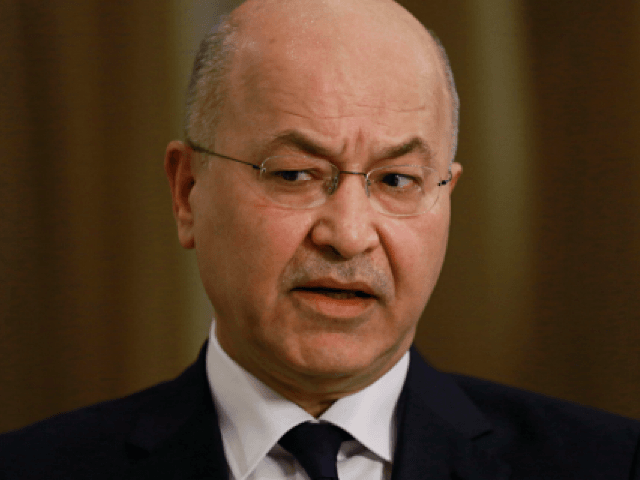Iraqi President Barham Salih claimed in an interview on Wednesday that Baghdad has “more than once” hosted secret talks between Saudi Arabia and Iran.
The Financial Times reported on April 18 that a single round of direct talks between Saudi and Iranian officials quietly occurred in Baghdad on April 9. The discussions were focused on the civil war in Yemen, where Saudi Arabia and Iran have intervened on different sides.
Saudi intelligence chief Khalid bin Ali al-Humaidan reportedly led his country’s delegation, while Iranian Supreme National Security Council secretary Ali Shamkhani led his. Iraqi Prime Minister Mustafa al-Kadhimi “facilitated” the discussion.
Kadhimi is reportedly on good personal terms with Saudi Arabia’s crown prince and de facto chief executive, Mohammed bin Salman, but Kadhimi’s efforts to improve relations with Iran last year noticeably angered the Saudis.
“The prime minister is very keen to personally play a role in turning Iraq into a bridge between these antagonistic powers in the region. It’s in Iraq’s interest that it can play this role,” an Iraqi official explained to the Financial Times.
Saudi and Iranian officials generally denied such a meeting took place, or refused to comment, but Salih said Wednesday that in truth more than one round of Saudi-Iran talks have been hosted in Baghdad. He provided no further details about the discussions.
“It is ongoing, and it is important and it is significant, and for Iraq to be able to play that convening role between these regional actors is important,” he said.
Salih added that he would like to see a resolution to strife between the United States and Iran as well.
“The Middle East has been condemned to a cycle of conflict and instability over the last few decades,” he said. “It’s time to move beyond.”
U.S. Secretary of State Antony Blinken on Tuesday refused to confirm reports that Saudi Arabia and Iran are quietly meeting in Baghdad, but added that “if they’re talking I think that’s generally a good thing.”
“Talking is usually better than the alternative. Does it lead to results? That’s another question,” Blinken mused.
Blinken said America, “when we’re acting at our best,” retains “a greater ability than any other country to mobilize others in positive, collective action,” but “if countries are talking directly together without us in the middle, that’s maybe even better.”

COMMENTS
Please let us know if you're having issues with commenting.